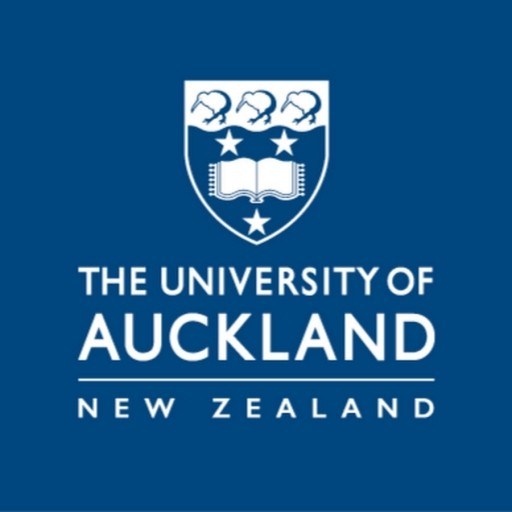Photos of university
The Bachelor of Engineering (Honours) at the University of Canterbury is a comprehensive and rigorous undergraduate program designed to equip students with the foundational knowledge, practical skills, and innovative mindset required for a successful career in engineering. This degree offers a strong focus on technical expertise across various engineering disciplines, including Civil, Mechanical, Electrical, Software, and Mechatronics Engineering, allowing students to tailor their studies to their interests and career aspirations.
Throughout the program, students engage in a blend of theoretical coursework, laboratory work, and real-world projects that foster problem-solving abilities, critical thinking, and teamwork. The curriculum emphasizes sustainable engineering practices, ethical considerations, and contemporary technological advancements, preparing graduates to contribute effectively to society and the environment. Specialized modules also introduce students to emerging fields such as renewable energy, automation, and digital systems, ensuring they stay abreast of industry trends and innovations.
The program is structured to include both foundational courses that establish core engineering principles and advanced subjects that challenge students to apply their knowledge creatively. Practical training is integrated through workshops, industry placements, and design projects, facilitating hands-on experience and professional development. The university leverages state-of-the-art laboratories, research facilities, and partnerships with industry leaders to provide a dynamic learning environment.
Graduates of the Bachelor of Engineering (Honours) are well-prepared for diverse career paths, including engineering consultancy, infrastructure development, technology innovation, and research and development. Many alumni also pursue postgraduate studies to further specialize or deepen their expertise in their chosen field. The program’s strong connections with industry ensure that students gain valuable networking opportunities and insights into current engineering practices.
With a commitment to excellence and innovation, the University of Canterbury’s engineering degree aims to produce future leaders capable of addressing complex engineering challenges locally and globally. Whether aiming to contribute to sustainable development, technological advancements, or infrastructure resilience, students find a supportive and enriching educational environment that fosters lifelong learning and professional growth.
The first year of the degree is called the Engineering Intermediate Year and comprises nine courses (120 points) which is made up of:
- five compulsory courses and
- four further Intermediate Year courses which vary depending on which Engineering discipline you want to specialise in. See the 'Subjects and courses' section below for the list of disciplines.
The Intermediate Year is followed by three Professional Years of study in one of the Engineering disciplines. Entry to the Professional Years is limited and based on your performance in the first year(s). These years will focus on the relevant knowledge and skills you will need in your chosen discipline.
During your degree you will complete 100 days (800 hours) of practical work placement.
Entry requirements
Admission to UC with University Entrance, or equivalent, is required to enrol for a Bachelor's degree. Domestic applicants over 20 who do not hold University Entrance, or equivalent, may gain admission by providing evidence of their ability to complete tertiary study successfully. For information on gaining admission to UC please see how to apply for undergraduate qualifications. For specific entry requirements for the BE(Hons), please see below.
You are also required to meet UC’s English language requirements.
Specific entry requirements
For students entering the Intermediate Year (first year)
NCEA entrance requirements
You should aim to have at least:
- 14 credits in Level 3 maths or calculus including both differentiation and integration*
- 14 credits in Level 3 physics
- 14 credits in Level 3 chemistry**.
18 credits are strongly recommended in all subjects.
International Baccalaureate (IB) Diploma
You will need to have:
- IB Score of 26 points
- minimum of 4 HL (or 6 SL) in each of maths and physics (HL is recommended)
- minimum of 4 HL (or 6 SL) in chemistry**.
Cambridge International Examination (CIE)
You will need to have:
- CIE Score of 140 points
- maths and physics – D grade or better at A level or A in AS level
- chemistry – D grade or better at A level or A in AS level**.
Alternatively the Intermediate can be completed in more than one year (maximum of two years) with a minimum requirement of:
- CIE Score of 140 Points
- D Grade at A-Level or C Grade at AS-Level in Mathematics
- D Grade at A-Level or C Grade at AS-Level in Physics
- preferably C Grade at AS-Level in Chemistry (discipline specific).
* Note: Achievement standards 91578 – 'Apply differentiation methods in solving problems' and 91579 - 'Apply integration methods in solving problems', must be included.
** Note: the Chemistry component is not required for some engineering disciplines. However, a basic knowledge of chemistry is expected of all Intermediate Year students. Please see the College of Engineering web page for arrangements for students who have not taken NCEA Level 3 chemistry.
If you do not meet the above requirements
If you have not studied one or more of the required subjects, or did not achieve enough credits, but have University Entrance, you may consider an introductory pathway such as:
- taking a Headstart summer course to catch up or
- take an introductory course in specific Science subjects to start with (eg, MATH 101, PHYS 111 and CHEM 114).
You could then take the Intermediate Year courses in Semester 2 and over summer, or do an extra year of study.
Top achievers
If you achieve outstanding results in one or more of the required subjects and/or complete a university-level course (eg, a STAR course), you may be able to replace one or more of the standard Intermediate Year courses with interest courses. Or you may be able to gain direct entry into the First Professional Year (in your preferred discipline) so that you can complete the degree in three years. For more information, please refer to the Modified Intermediate Year/Direct Entry page.
The University of Canterbury offers a range of financing options for students enrolled in its engineering programs to support their academic pursuits and reduce financial barriers. Domestic students can access government-funded student loans and allowances, which cover tuition fees and living expenses, depending on their eligibility. The government support schemes include the Student Loan Scheme, administered by the New Zealand Ministry of Social Development, providing loans for tuition and weekly living allowances, with repayment options linked to income levels after graduation. International students are generally required to pay full tuition fees upfront or via payment plans offered by the university; scholarship opportunities may be available to help mitigate costs. The university also offers a variety of scholarships, grants, and bursaries tailored specifically for engineering students, based on academic achievement, leadership, and need. These financial aid options are available annually and require applicants to meet certain eligibility criteria and submit separate applications. Additionally, some students may qualify for external scholarships or sponsorships from industry corporations, government bodies, or charitable foundations, aimed at fostering engineering talent. The university provides financial counseling services to assist students in understanding their options, planning budgets, and managing payments effectively throughout their studies. For students employed part-time or engaged in internships related to their field, income earned can supplement their finances but is generally insufficient to cover all expenses without additional support. International students should also consider currency exchange rates and international transaction fees, which can impact the overall cost. In some cases, students may access employer schemes or industry partnerships that offer financial assistance or paid internships, gaining practical experience while contributing to their funding. The university encourages early planning and application for financial aid, emphasizing the importance of combining multiple sources of funding for a sustainable financial plan. Overall, the combination of government support, university scholarships, external funding, and personal savings forms a comprehensive financing approach designed to ensure that students can focus on their engineering education without undue financial stress.
Career opportunities
Engineering students have the opportunity to meet with some of New Zealand's largest engineering companies through careers fairs, networking evenings, and engineering expos.
All UC engineering degrees are accredited by IPENZ and all students qualify for student membership to IPENZ.
Our graduates have a wide range of employment opportunities, from private companies and consultancies through to government agencies. Many UC engineers progress into management.









